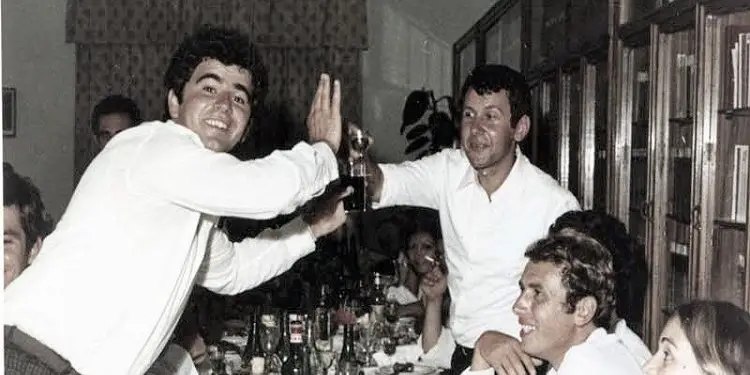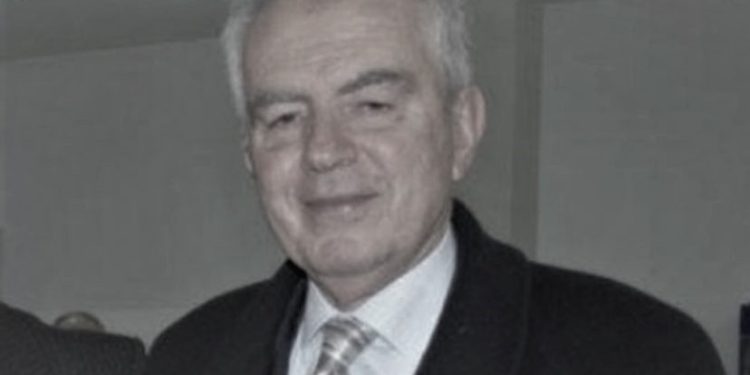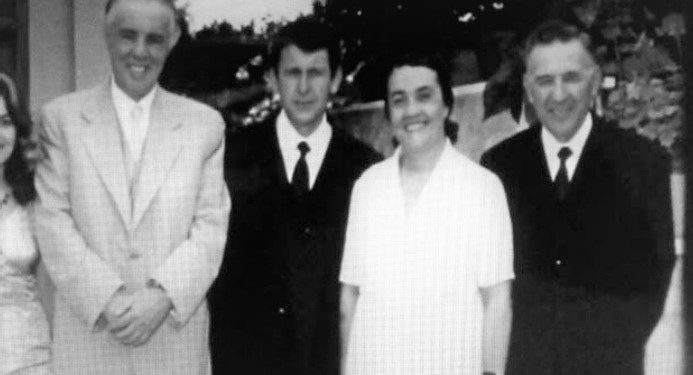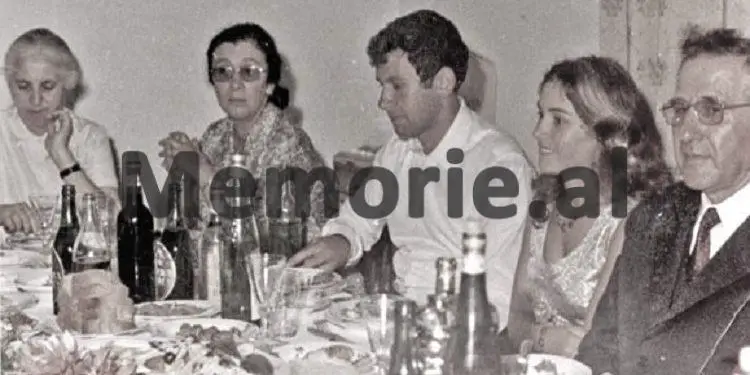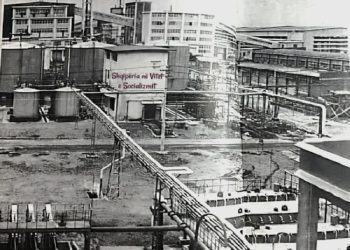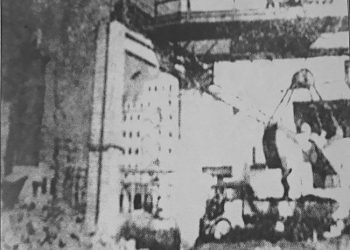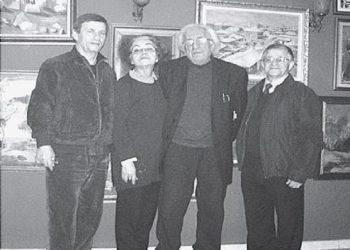From Bashkim Koplik
Memorie.al / Ladi, or long, Vladimir Mehmet Shehu, should become an honorary citizen of Durrës. The awarding of this title to Ladi, after his death, mainly honors Durres, and specifically the mayor and the Durres municipal council, who will perform this formality. Ladi practically has this title, at least for the majority of Durrsak people who know the history of their city, in the 1970s and 80s. In short: Ladi made the main contribution to establishing a study center and a modern electronic equipment production plant in Durrës, where over 750 employees per year were hired for over 20 consecutive years. Ladi was 23 years old when he started working at URT (Durres Radio-television Plant, which at that time, in 1969, was called U.E.M. (Durres Electro-Mechanical Plant).
He was an electronic engineer who had just graduated from university, with a great passion for knowledge and work. Immediately, in less than two years, he managed to gather talented engineers and specialists around him. He, Ladi, induced the principle of choosing capable people, despite the fact that they could also have biographical value.
That’s how I was when I’m writing these lines, “my biographical insult”, but also many others, “even worse than me”. They talk about the wild time of communism, when the class war wreaked havoc, when the first requirement for putting a man to work was the political side, i.e. his stance in favor of communism, but also his whole family, even a period it was said that “the biography will be seen up to 7 generations”.
This policy was elaborated by Enver Hoxha, but also by Ladi’s father, Prime Minister Mehmet Shehu. E Ladi was acting not according to his father’s teachings, but according to technical and human logic. One of the charges that were made when Ladi’s father was killed (year 1981), was: “Ladi is a technician and has not waged the class war”. The production of radios and televisions had started in Durrës, before Ladi started working there.
But it was a small production, completely artisanal, and with loads of amateurism. Ladi’s merit was that, working on his own, but also supporting the work of his colleagues, he managed to move to a modern factory within a few years. The plant began not only to make the final assembly of radios and televisions, but also to produce many of their parts, and many other electronic devices, such as computers, automatic devices, equipment for the military, etc.
Ladi had the spirit of youth. He used the fact that he was the prime minister’s son to develop URT, which was a Durrës enterprise. Endless funds were granted by the government to URT. It became so “loved” that there were many requests for the plant to be moved to Tirana. It was mainly Ladi’s insistence that it remained in Durrës. The special preparation of engineers and specialists who worked at the URT of Durrës is dedicated to Ladi.
It was his Western spirit that opposed the communist closure of the time. He managed to commission a lot of Western literature, mostly American, which transformed, in the full sense of the word, many of us who worked with him. But it was not only literature, but also the visits of foreign specialists to URT, as well as the visits of our specialists abroad that formed that environment, which gives us the right to call URT a study center of the time.
Ladi created a “western” island, URT, in Albania where he ruled a total isolation from the world. All this was based on the western worldview that Ladi had. He often spoke to me personally, of course in confidence, up to and against the basic principles of communism, against Enverism, against the idiotic management of the economy in Albania in the years 1970-74, a time when I had a close friendship with him.
But many other colleagues also wondered how it was possible for the son of the chief communist, Mehmet Shehu, to be so pro-Western, so free. But Ladi’s western ideas were expressed not only in the works of the Factory, but also in literature, history, music, art, etc. From him we managed to read many books that other Albanians could hardly find at that time.
We listened to music with modern tools of the time. It may seem to someone that it is not connected at all, for example, literature with engineering or economics. No, here we are talking about the world view, about the mentality that created a complex of the free man, in a monster regime, such as the communist one where Ladi and we lived. Not being a free man, Ladi could not have done what he did for Durrës.
Ladi was a free and Western man, that’s why communism killed him. Yes, communism killed him, despite the fact that he may have committed suicide, because it was communism that pushed him to do it. Enver Hoxha knew how free a man Ladi was, that’s why he invented that farce with “Mehmet’s son, who had produced a special radio to connect with the Americans”.
Many of us at URT knew that “that radio special” was just an experimental production that Ladi did for the defense of his study for obtaining a doctorate. Well, let’s not dwell on the details. Of course, there may be some envious from some association that calls itself from Durrës, which means “he was not Durrsak”!
No, Ladi was a durrsak past many durrsaks who boast that they came to Durrës, “not in 1970, but in 1968”, and other such sayings that only aim to reduce the competition for honoring people who have given to Durrës.
Or, someone can come out and say: “Why, we will make the son of a communist leader an honorary citizen”! I would say to him: doesn’t be a hypocrite, because Durrës has made “honorary citizens” the chief communists themselves!
Let’s leave the connection of the sons, with the biographies of the parents, to communism, and not to carry that plague, the class war, to post-communism. Last but not least. There are thousands of people from Durrës who have known Ladi, and it is their duty to express themselves, even by writing in the well-known Durres newspaper “Bulevard”, etc., so that Ladi is given the minimum: the title “Honorary Citizen of Durres” . Memorie.al




